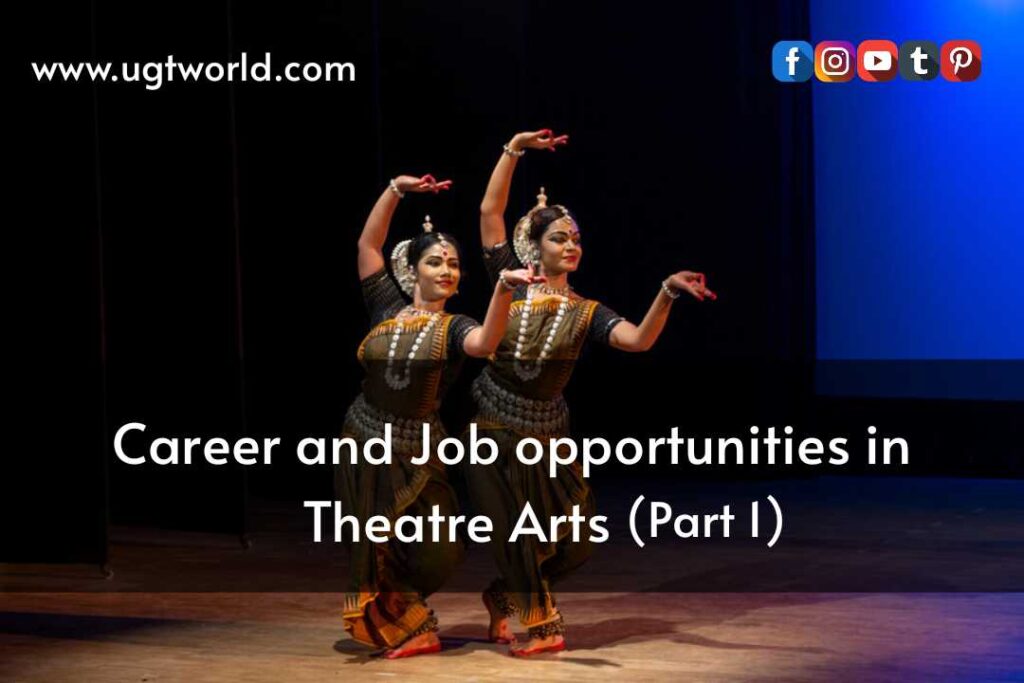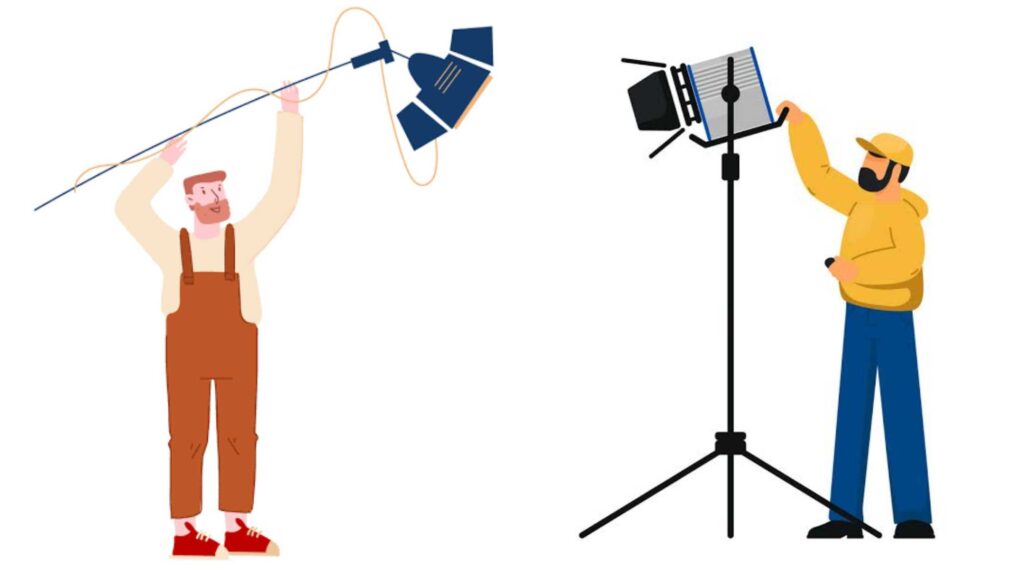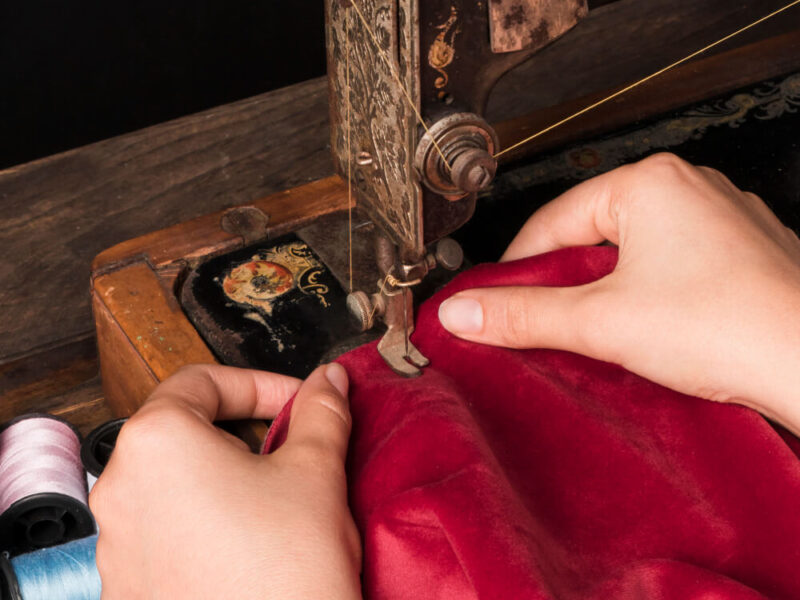A theatre arts is a higher education program that studies theatre arts, design and management.

When we hear Theatre arts, we think about dramas, acts, and visuals. We often enjoy watching them perform their art live. That moment or bit later we come to think of it can I do it or can I join them in any way? Then the answer is Yes we can join them in particular ways. The career opportunities in theatre arts and performing arts.
Also, there are numerous jobs in production that you can give it a try. In this article, we explore jobs in theatre showing you the main duties and Approx salaries (different in every part) within each theatre category.
Careers in Theatre arts and Performing arts
1. Writer/Script writer

In the theatre industry, a writer typically creates the characters, dialogue and actions in a play or script. They may collaborate with the director and producer to bring the story to the stage or screen, or they may work independently and write pieces without providing oversight and feedback.
2. Host/Anchor
If you have a good voice, and diction and can emote well, you may make a great career as an event show host or anchor. Almost all events need anchors or hosts to make necessary announcements and hold the stage and performances together. A pleasant personality, excellent stage presence, presence of mind, and vibrant performance energy are essential prerequisites for careers as a host or anchor.
3. Stand-Up Comedian

The world is starved for a good laugh after a long and tiring day at work. The past two decades have seen the rise of laughter and comedy shows on television and stand-up comedy is positioned to be a lucrative profession in the coming times. The late Raju Srivastava and his contemporaries have brought stand-up comedy to the mainstream in India. Many of the famous professionals in this area started with more conventional careers but eventually found their calling in stand-up comedy shows.
4. Musician
To craft a career in music, it is useful to train in any of the classical schools of music from a guru or teacher of good repute. Some of the careers that are connected to music include playback singer, composer, choir artist, music teacher, etc. Students of music often start performing early and need parental support from an early age to make a career in music. Apart from a singing career, you may also play instruments and become part of a group of performing artists or have your own band. This often lays the foundation for an interesting career in music be it based on classical ragas or rock beats or a fusion of the two.
5. Dancer

A dancer learns sequences from a choreographer and performs them on stage. Many professional dancers have experience in a number of styles and may specialize in one or two depending on the roles they have. They may also be featured dancers or background dancers to another performer.
6. Choreographer
A choreographer plans a dance or fight sequence and coaches performers through it. The sequences they create must capture the conflict in the scene, the internal thoughts and feelings of the characters, remain safe for all performers and be easy-to-follow and engaging for the audience.
7. Casting manager
A casting manager assists the director and producer in auditioning, selecting and mentoring performers for a production. They arrange and conduct interviews for roles and may be in charge of selecting background performers.
5. Drama / Acting

An actor performs a character on stage or in a film or TV production. These professionals are responsible for learning their lines, rehearsing with castmates and collaborating with the director, hairstylist, makeup artist and costume designer to bring their character to life. Consult the Screen Actors Guild for industry standards on pay scale for roles that require acting experience or acting skills.
8. Director
This theatre professional leads the entire production by instructing performers, blocking scenes with engaging movement across the stage or set and coordinating with set designers, prop makers, costume designers and other creative professionals to create looks for characters. They may also work with producers to make sure the production stays within budget and moves according to schedule.
9. Assistant director

An assistant director supports the director in managing performers, monitoring rehearsals and coordinating stage crew. In this role, you may work directly with the stage manager, taking notes and ensuring the production runs smoothly.
10. Broadcaster
With a theatre degree, you can become a broadcaster and use your voice to emphasize emotion and speak in front of large groups of people. In this role, you may present music, news or sports, interview guests and even serve as a master of ceremonies at televised weddings, parties and events.
Career in Production
11. Makeup artist

A makeup artist interprets the play or script to create unique and authentic makeup looks for characters. They collaborate with the director, performers, costume designer and hairstylist to make sure the style they’ve chosen makes sense for the story and character, looks good on stage or on screen and is comfortable for the performer.
12. Hairstylist
In theatre, a hairstylist interprets the characters in a play, script or another type of performance and designs hairstyles to complement each character and the story. They may work with wigs, hair dye and other accessories to make each look. They also help performers get ready for each show and for each scene or act that requires a new look.
13. Costume designer

A costume designer, sometimes referred to as a fashion designer, interprets the play or script to create and select clothing and accessories that are appropriate for the character’s personality, the story’s time period and for moving around the stage. They may create new garments or purchase materials to redesign costumes for the production. They may also be in charge of organizing costumes before, during and after productions.
14. Stage manager
A stage manager leads the stagehands and other production professionals in keeping performers, props, sets, costumes and hair and makeup on schedule during the show. They help performers make their cues, collaborate with the director to improve dramatic timing and coordinate set transitions and special effects.
15. Stagehand / Backstage
With so many different moving parts in theatre, a stagehand can have a variety of responsibilities. They may organize and provide props, move set pieces between scenes, operate equipment like the curtain or lights and help performers collect costumes, move to hair and makeup and overall keep the show running. They typically report to a stage manager.
16. Lighting technician

This theatre technology professional is responsible for setting up, operating and managing the lighting of a production. They typically collaborate with the director on light placement, light motivation, color and tone as well as timing.
17. Producer
A producer manages the budget and funding, timeline, business partnerships, theatre housing and other management tasks for a production. They also collaborate with the director on securing the best talent, stage crew and theatre for the show.
I must say you get a chance to discover it while reading that but there is no end yet, Yes there are a few more jobs or career opportunities available in theatre that we’re gonna go unfold on to our next part so be with us till then and have a great time while researching for it.
Write with us✍?
Greetings to Everyone from TeamUgtWorld! Anybody who wants to write whatever his/her Heart wants to. They can now publish their content with us on our platform @Ugtworld. For more information click on the following link…


